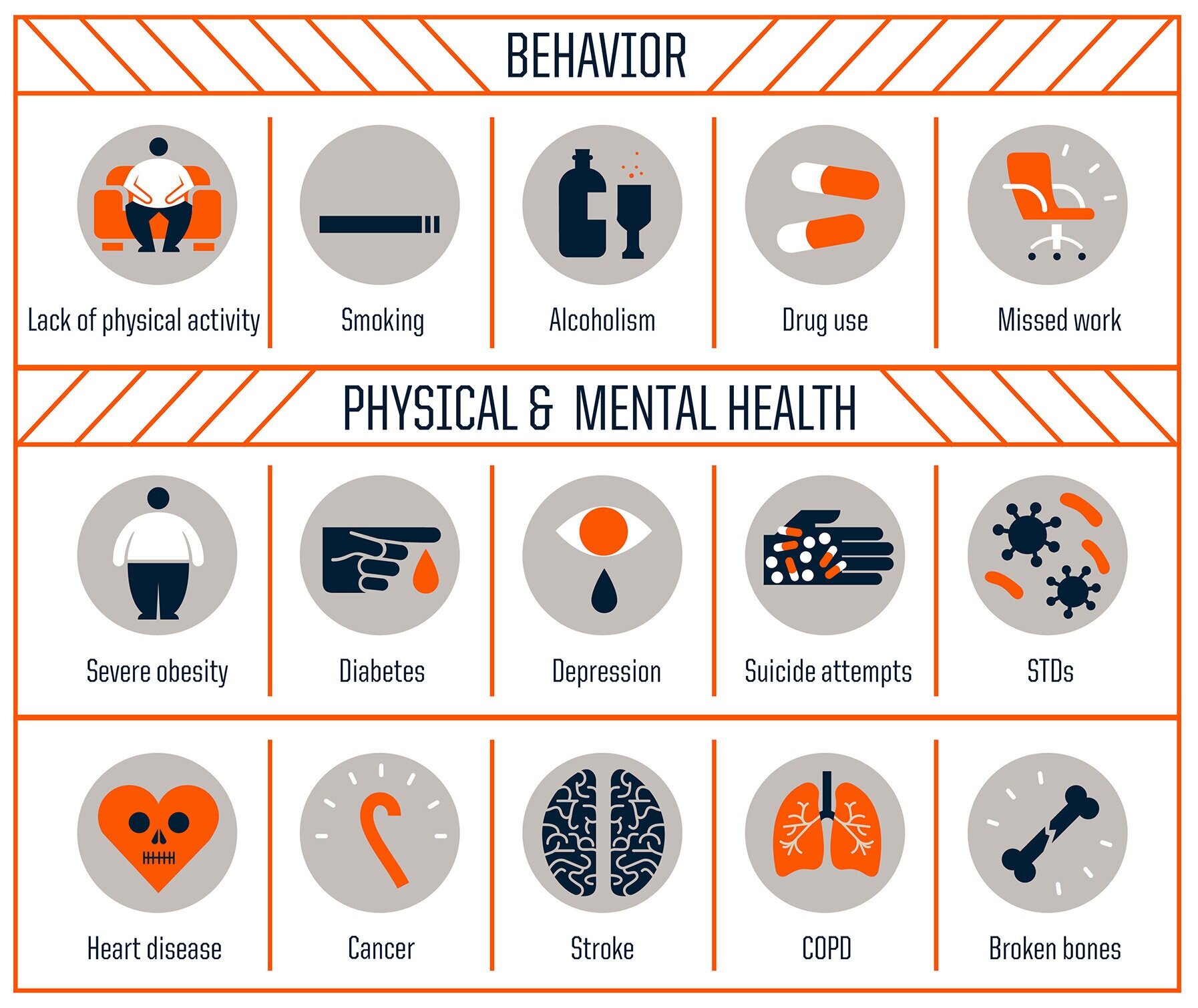If we ask the question: How many of you have experienced trauma within yourselves or know someone who has? The answer is everyone (direct experience or knowing someone). To continue raising awareness on childhood trauma, today’s blogpost will focus on adverse childhood experiences (ACEs). Have you heard of the ACE test? I learnt about ACEs when I watched Oprah Winfrey report on Healing Childhood Trauma on the show 60 Minutes in 2018. She returned to Milwaukee where she grew up and suffered from a lot of trauma to report on how trauma gets passed on from generation to generation in families and communities as people grapple with abuse, neglect and toxic levels of anxiety in their lives. She talked about trauma-informed care with health care providers not asking “What is wrong with you?” anymore but rather “What happened to you?”
The ACE Study
ACE study was started by Dr Felitti at the Kaiser Permanent (big US insurance company) Obesity Clinic in San Diego. Dr Felitti was very successful in helping his patients lose a lot of weight without surgery. He noticed something curious though: 50% of his patients were dropping out of the weight loss program despite continuing to lose weight. To try to understand this, he decided to conduct face to face interviews with his more than 200 patients and accidentally discovered that more than 85% of the patients had been sexually abused as children. In 1985, it was still widely believed that sexual assault was extremely rare. Obesity was a solution for a problem people had no clue about. The patients were eating a lot to numb the emotional pain and the weight served as protection, as one woman in the study said it: “overweight is overlooked”. Losing weight was taking away a solution to their problem and that is the reason why they were dropping out of the program.
Dr Felitti’s findings were not readily accepted by the medical community but Dr Felitti found a partner in Dr Robert Anda from the Centers for Disease and Medical Control (CDC) and they went on to broaden the study to 17 000 people and conduct the CDC Kaiser Permanente study. The Adverse Childhood Experiences (ACEs) study’s questions focused on 10 types of adverse childhood experiences: sexual abuse, verbal abuse, physical abuse, a parent who’s mentally ill or alcoholic, a mother who’s a domestic violence victim, a family member who’s been incarcerated, a loss of a parent through divorce or abandonment, emotional neglect, and physical neglect. The focus was on the 10 questions that came up repeatedly but adverse childhood experiences go beyond the 10 questions.
Key finding of the study: ACEs are surprisingly common in the American population. 2/3 of Americans (64%) have at least one ACEs. The study showed that there was a direct link between ACEs and chronic disease, mental illness, time in prison, work issues, etc. It also showed as your ACE score increases so is the risk of disease, social and emotional problems in life. It doesn’t matter which type of ACE you have, toxic stress impacts the brain in the same way.
The original ACE study focused on middle-class White Americans in the San Diego area, recent studies in the US have shown that while ACEs affected all socioeconomic groups, people with low income and less than a high school level of education, people of color and people who identified as gay, lesbian or bisexual were more likely to have suffered adverse childhood experiences.
The ACE Test
The ACE test are 10 questions divided into three categories: abuse, neglect and household dysfunction
What does your score mean?
The ACE score is meant as a guidance, it does not take genes or lifestyle (diet, exercise, smoking or not) which can greatly influence health outcomes. It also does not take into account positive experiences in childhood that may mitigate the effects of the adverse experiences: having a teacher who believes in you, an aunt, a grandmother, a neighbor or a friend who loves you can mitigate the effects of the trauma.

Source: Centers for Disease Control and Prevention
My ACE score is very high, 7. My mother’s score is 3 and my sister’s is 8. From my mom’s generation to mine, the score increased and this is what lack of awareness about adverse childhood experiences does, the trauma keeps being transmitted until we consciously decide to break the cycle.
Always remember that the ACE score is meant as a guideline, if you experience chronic stress over a long period of time as a child, this might likely increase the risk of health consequences in adulthood. If you have suffered from adverse childhood experiences, you can improve your life by building resilience (e.g. asking for help, developing trusting relations, forming a positive attitude, listening to your feelings, etc.). The good news is working on increasing resilience over the lifespan of a trauma survivor can counter the effects of ACEs and possibly reduce the risk of illness later in life.

